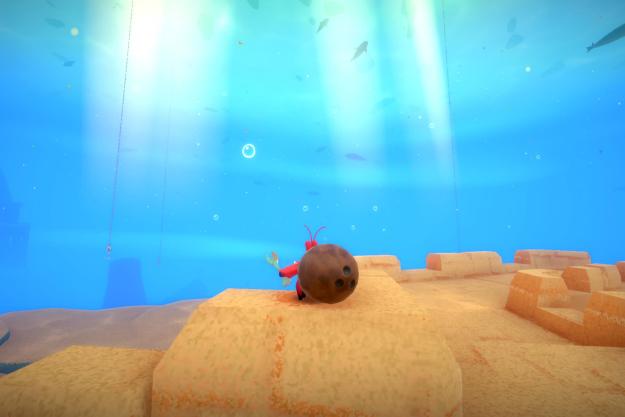
There have been far too many Jetsetter columns devoted to the closure of British development studios since we started almost two years ago. Small names and struggling start ups these were not, etiher. One of the most tragic losses in our industry in 2012 was the closure of Sony Liverpool, the studio once known as Psygnosis and the house behind classics like WipeOut. Liverpool’s closure itself came on the heels of other great racing game teams in Britain like Bizarre Creations, the creators of Blur. This week we say goodbye to another team from that storied community, Criterion Games. While the studio itself hasn’t been officially closed, the departure of its two co-founders is just the latest nail in its coffin. Even if its name survives, the studio is all but dead.
Criterion Games co-founders Fiona Sperry and Alex Ward announced on Friday morning that they had not only left their studio but Electronic Arts entirely. The latter part of the announcement was the most shocking. Since the release of Need For Speed: Most Wanted in 2012, EA has slowly been stripping staff away from Criterion to form Ghost Studios. Ghost’s first game was Need For Speed: Rivals, and by the time it was in production, 80-percent of Criterion’s staff had moved to the new team.
If Sperry and Ward had made the shift to Ghost, that would have been one thing, but in April 2013 Alex Ward announced that the new, smaller Criterion Games would be working on a brand new series. What’s more, the game would not be a racing game – a dramatic announcement considering the studio hadn’t worked on non-vehicular games since 2006’s shooter Black. Ward also said that it wouldn’t be a shooter, though.
With Ward and Sperry leaving Electronic Arts it’s hard to see a future for Criterion’s new project, or for Criterion itself. Electronic Arts said otherwise of course. “The incredibly creative and talented team at Criterion are hard at work on a new project for next-gen consoles as new IP continues to be a major priority across EA,” said EA in its official statement, “Matt Webster is leading development of the new game and the Criterion studio moving forward. Matt has been part of Criterion for years and has an exciting vision for this new game.”
Rather than continuing on with 80-percent of the staff that made Criterion what it was gone, Ward announced on Twitter that the co-founders are starting their very own studio.
Criterion Games was, in its time, known for a very particular brand of racing game. Early work like TrickStyle for Dreamcast showed a lot of promise, but it wasn’t until the team made Burnout for PlayStation 2, GameCube and Xbox in 2001 that it truly found its voice. Burnout had the same sense of speed and unreality of classic arcade racing games like OutRun, but it blended in a brilliantly physical, combative aspect with its crashing mechanics. Forget avoiding the walls and other cars in Burnout; Criterion demanded you to slam into people.
Their crowning achievement was Burnout Paradise. Released in 2008 for PlayStation 3, Xbox 360, and PC, Burnout Paradise was one of the few big budget games released that not only recognized the cultural changes affecting the game industry but embraced them as a fundamental part of their design. Online features like “Easy Drive” that let you instantly see what your friends were doing and let you invite them to a race from the single player game; a running tally of your in game stats compared to your friend list; massive quantities of downloadable content released free of charge; and enormous updates like Big Surf island that added a whole new arena to play in and dramatically different goals to go with it. Burnout Paradise was a game built for the future most developers are only now embracing.
Electronic Arts, which only acquired Criterion Games in 2004 after the Burnout series was established, unfortunately did not allow Criterion Games to continue exploring its creativity. The team was moved away from Burnout and placed in charge of a series of games in the Need For Speed series. Need For Speed: Hot Pursuit in 2010 and Need For Speed: Most Wanted in 2012 were very well made, but both were ultimately sterile when compared to the vibrant, effervescent Burnout series. It’s no wonder Ghost was started as a new studio; the personality of Criterion had all but disappeared. And now so have the captains that were steering the ship.
Jetsetter wishes Matt Webster and all who remain at Criterion all the best, but it’s difficult at this point to recognize it as the same studio. Ghost continues to produce solid (if chilly) work as Need For Speed: Rivals proves, and Sperry and Ward will no doubt go on to make fine things. The Criterion Games that made Burnout Paradise is dead and gone, though, and the British game development world is dimmed by the loss.


